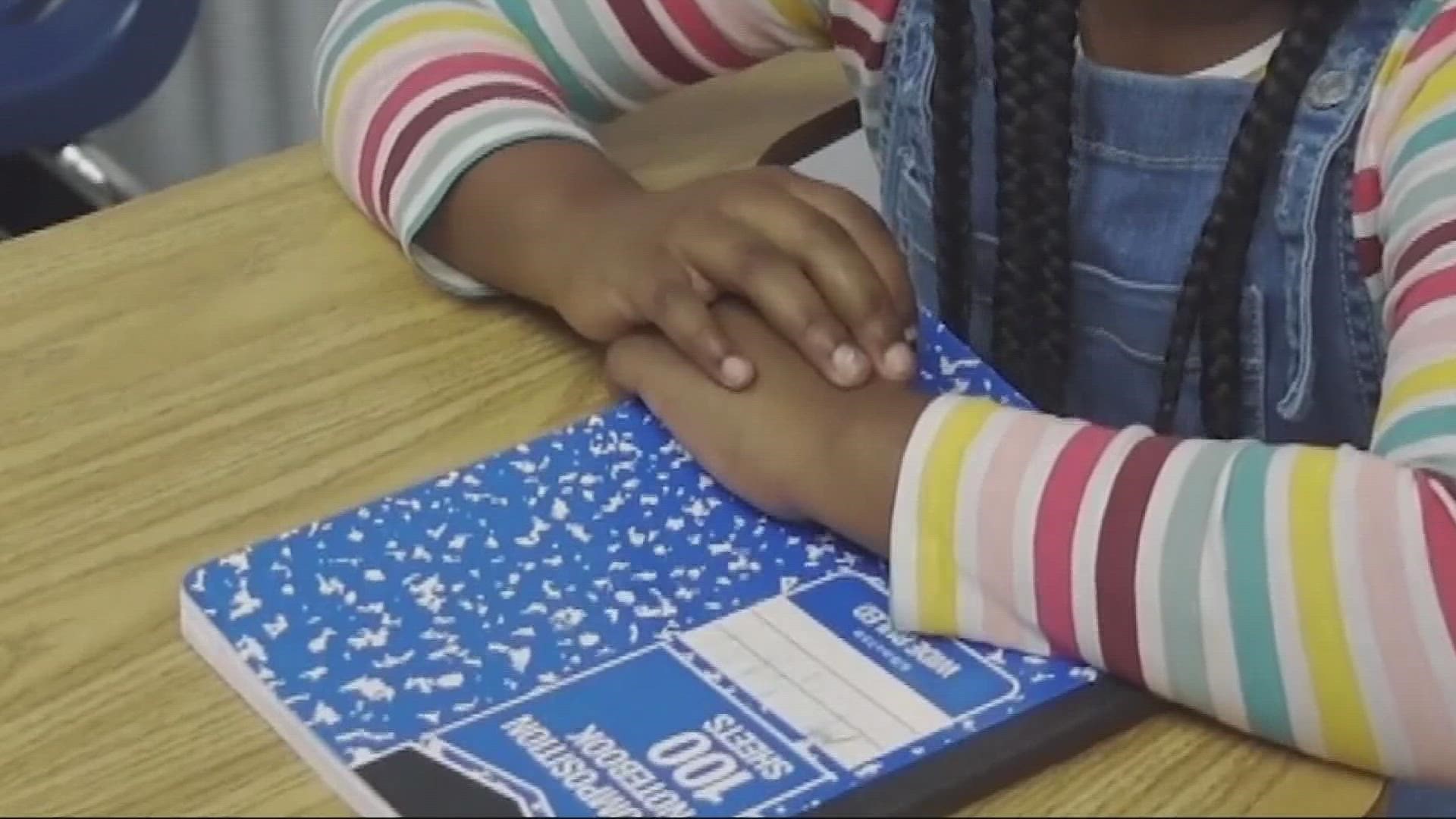PORTLAND, Ore. — We’ve heard it over and over from teachers and other school staff. They say students have more needs than ever this year.
But this week, Portland educators got a day to focus on improving their school climate.
Elizabeth Thiel, president of the Portland Association of Teachers, said before the school year starts, educators typically have what’s called a “school climate day.” The purpose is to get on the same page about what supports are available to students and how teachers can get those supports to students if the situation arises.
“Because of COVID, that day to focus on school climate didn't happen before school started,” said Thiel.
Margaret Calvert, a regional superintendent for Portland Public Schools (PPS), said the district touched on school climate at the beginning of the year, but a day with the intention that school climate be the focus didn't happen until this week.
With all the fights and outbursts in class this year, educators across the board have said kids need more help than ever managing their emotions and relationships.
“Due to subbing shortages, sometimes when there are conflicts between students, they [some of the larger middle and high schools] literally don't have staff to stop the conflict,” said Jacque Dixon, a school climate specialist for PPS.
RELATED: Oregon's 80.6% graduation rate, down 2% from last year, draws praise from education leaders
Dixon said stopping conflicts and facilitating productive conversations in the classroom, especially during an emotionally charged situation, is a skill that needs to be developed. School climate days can help teachers get more acquainted with what to do in those situations.
Dixon said on Monday, each school focused on their own specific issues.
“In some schools, they did a focus on self care,” said Dixon. She said other schools focused on how to make sure certain supports were available to all students or what to do when students have higher need.
Dixon said while it’s important for staff to have school climate days, it’s also important to continue development.
“When we don't have continuity with the professional development, where it's not building on itself, then it's hard to have high expectations of educators as well if there's not a clear understanding of how they are supposed to be incorporating restorative justice into their classrooms and how are they supposed to be relying on supports,” said Dixon.
Calvert said the district is trying to find ways to revisit topics related to school climate throughout the year.
As for the school climate day on Monday, Calvert said it was not only for building a more positive school climate through collaboration and promoting a sense of belonging and connectedness among students and staff, but part of the day was also for teachers to spend time planning.
“We want to break down the sense of isolation that teachers can sometimes feel, and so here's the space where you can really see the collective action, like here are our common agreements, here are the things we're in support students, here's how to access it, and we're doing this work together,” explained Calvert.
But some teachers say the bigger issue that’s preventing better support for students is the substitute shortage.
“A lot of our counselors and a lot of our social workers are substituting in buildings right now,” said Beyoung Yu, an elementary school teacher in the district.
“It's created a huge strain in the sense that the social workers and these counselors aren't able to meet the supports of our students because they're filling other duties in our schools right now,” he said.
The fix to that is not an easy on, Calvert said, but the district is continuing to hire substitute teachers in an effort to increase its substitute pool.

